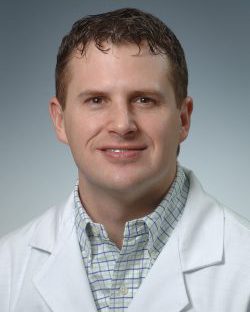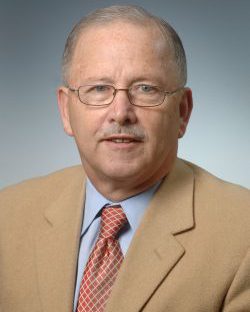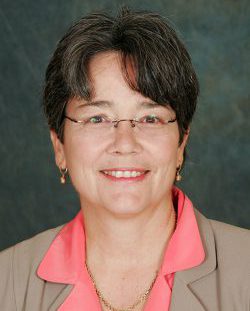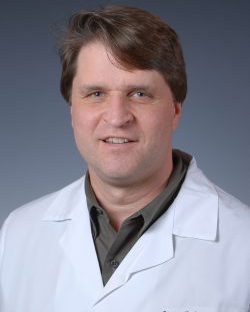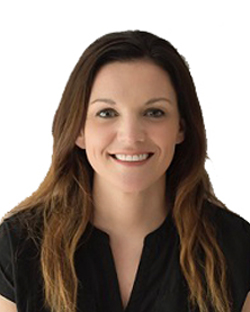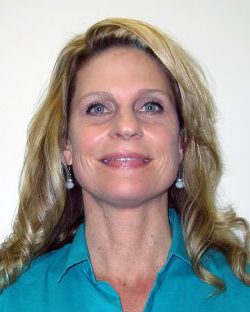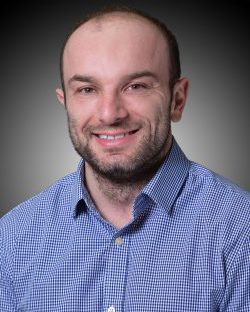Sleep is a very important part of our lives. How well we sleep has a direct bearing on how we feel and our health. Some people have difficulty falling asleep or staying asleep at night, while others find it difficult to remain awake during the day.
The most common sleep disturbances include insomnia, sleep apnea, periodic limb movements and shift work. There are many other types of sleep disturbances, including narcolepsy, sleepwalking, sleep terror and bedwetting. These problems can affect your ability to function normally and some may even be life threatening.
Understanding the importance of comfort and convenience we offer:
Downloadable Forms
Download a copy of our
Patient Referral Form that you or your physician’s office can fill out.
Download a copy of our
Adult History Questionnaire.
Download a copy of our Pediatric History Questionnaire.
A team of qualified and experienced professionals using state-of-the-art diagnostic medical equipment monitor patients using a polygraph to record physiological parameters including:
- Eye Movement
- Chin Muscle Activity
- Heart Rate
- Brain Waves
- Airflow (nose and mouth)
- Abdomen and Chest Wall Movement
- Oxygen Saturation
- Leg Muscle Activity
Special Tests
- Polysomnography
- Multiple Sleep Latency Test
- Multiple Wakefulness Testing
Common Sleep Disorders
Our Sleep Disorders Centers are outpatient diagnostic facilities. At the request of your primary care provider, the center will perform a comprehensive evaluation to aid in diagnosing disorders of sleep or wakefulness.
Insomnia
Difficulty going to sleep or difficulty remaining asleep are most often related to stress, anxiety, or aging. Insomnia also can be caused by physical problems such as sleep apnea or periodic limb movement. It may result from overuse of sleep medications, alcohol or drug abuse. Insomnia is often treatable once its causes have been identified.
Narcolepsy
Narcolepsy is a serious, potentially disabling disorder estimated to afflict more than 250,000 Americans. It usually begins in young adulthood and is a lifelong neurological disorder. The most common symptom of narcolepsy is excessive daytime sleepiness. There is no known cure for narcolepsy to date, however, there are medications that can help patients stay alert during the day and to function normally through daytime activities.
Nightmares
Nightmares are frightening dream experiences which can later be recalled. They may occur at any age.
Night Terrors
Night terrors usually occur between 4 and 12 years of age and disappear during adolescence. A night (or sleep) terror usually starts with an anguished scream. The sleeper appears to be in great distress, but is very difficult to arouse. It usually takes several minutes to gain full consciousness. If wakened, the person remembers a sense of terror or dread and a feeling of helplessness, but can seldom recall the experience.
Obstructive Sleep Apnea
One of the most prevalent sleep disorders is obstructive sleep apnea. Breathing is momentarily stopped during sleep because of an obstruction in the breathing passage. This disorder affects between 6 and 10 million Americans and may cause
- High blood pressure
- Stroke
- Cardiac arrhythmias
- Depression
- Mood changes
- Difficulty losing weight
- Male impotence
- Mental impairment
It is often characterized by chronic fatigue and loud snoring. The disorder is treatable with methods such as nasal CPAP (continuous positive airway pressure), upper airway surgery and dental devices.
Periodic Limb Movements
Sleepwalking
Occasional sleepwalking episodes are considered normal in children, however, frequent sleepwalking in adults is more serious. Since sleepwalking can be dangerous, sleepwalkers need to be protected by reducing the risk for falling or other dangers. This disorder can be aggravated by stress, anxiety, a lack of sleep, and an increase in alcohol consumption.
Do you have Sleep Apnea?
Take the STOP-BANG Questionnaire to find out your risk level
St. Elizabeth Healthcare’s partnership with ENT & Allergy Specialists (ENTAS) is the answer to your household’s snoring situation. Our specialized staff of physicians and audiologists can treat the full spectrum of sleep apnea in both children and adults.
If you are concerned that you or a loved one is suffering from sleep apnea, the STOP-BANG Sleep Apnea Questionnaire can give you a quick starting point to determine if there’s a problem. Answer YES or NO to the following questions and tally your score at the end.
Scoring
- If you scored 5-8 YES responses >> you have a high risk of sleep apnea.
- If you scored 3-4 YES responses >> you have an intermediate risk of sleep apnea.
- If you scored 0-2 YES responses >> you have a low risk of sleep apnea.
* STOP-BANG Sleep Apnea Questionnaire (Chung F et al Anesthesiology 2008 and BJA 2012)
Contact Us
If a sleep study is necessary or if you would like more information about scheduling one, please call (859) 301-9140. A physician referral is required for an appointment at one of our Sleep Disorder Centers in the Northern Kentucky area.
Frequently Asked Questions
The St. Elizabeth Healthcare Sleep Disorders Centers have helped thousands of people deal with their sleep problems and live healthier, fuller lives. Talk to your doctor today if you have two or more of the following signs:
- Consistently tired/fatigued during the day
- Loud snoring
- Snoring interrupted by pauses in breathing
- Gasping or snorting during sleep
- Frequent urination at night
- High blood pressure
- Frequent wakening at night
- Waking up with palpitations
- Attention Deficit Disorder
These may be signs and symptoms of a serious sleep disorder. Talk to your physician for advice and a referral. Your doctor can help you if you clearly describe your sleep concern. Before speaking with your doctor, think of sleep symptoms that bother you and how often they occur. A sleep diary can help you collect this information. Don’t wait for your regular checkup or another medical problem to see your doctor. If you suspect that you have a sleep disorder, make an appointment to assess the situation. Be sure to speak with your bed partner about your sleep habits as well. You may experience many symptoms that your partner is more aware of than you.
A sleep study usually lasts one night. Depending on the results of the study, additional tests may be required.
- Comfortable, loose clothes to wear to bed – pajamas, nightgown, shorts and a tee shirt.
- Any medications that you need to take during the night.
- A book or magazine to read before bed.
- You may prefer to bring your own pillow.
- Toothbrush, toothpaste, and other toiletries.
- Bathe/shower and wash your hair. Please leave your hair in its natural state.
- Do not apply any lotions, conditioners, gels, or creams to your hair or body.
- Do not take any naps during the day of your study.
- Please notify us in advance if you have any special needs or concerns.
- Continue to take all of your current medications and bring any medications you take at night to the center. We do not administer medications.
We ask that you arrive at our sleep center at your scheduled time. This will allow us to prepare the equipment and will allow you to get acclimated to the Sleep Disorders Center’s environment before the test begins. If you are not driving yourself, please arrange for your transportation to arrive and depart at the proper times.
When you arrive, you will be taken to your private bedroom. You will be asked to change into your nightclothes. The sleep technicians will apply electrodes to your face, head, chest, and legs. The electrodes along with multiple sensors will be applied, and it takes about 30 minutes to complete this procedure.
Many patients worry needlessly about these electrodes. The electrodes simply record the electrical activity present in your body; they do not generate any electrical current of their own. Most importantly, the application of the electrodes does not hurt. You may feel a little strange with electrodes and wires attached to your face and head, but the procedure is entirely painless. You may then relax until bedtime.
At bedtime, the technician will prepare to start the recording of your study. There will be a technician in the monitoring room all night. If you need anything during the night, all you need to do is push the call button and speak, and the technician will hear you through the intercom.
All patients are expected to stay in bed for seven hours. This means that the technicians will generally be waking you up seven hours from lights out. At this time they will remove your electrodes. If you are to be tested during the day, some – though not all – of your electrodes will be removed in the morning. Patients who remain for daytime testing are served breakfast.
A very large amount of information will be collected while you are a sleep study patient. As a consequence, it generally takes a few days to fully score, analyze, and interpret the findings. You will have already set up a follow up appointment with your Sleep Disorders Physician and during this visit your final results and treatment recommendations will be discussed with you.
While you are undergoing a sleep study, you will not be able to have visitors. A phone is available if you need to contact someone.
Sleep disorders are recognized as health problems, although insurance company reimbursements for sleep studies do vary. It is recommended that each patient consult with his or her insurance carrier prior to having a sleep study. St. Elizabeth Healthcare will make every effort to assist patients in verifying their insurance coverage.
Your physician may wish to call and arrange for your evaluation, or you may make an appointment yourself. We can also arrange for a personal tour of one of our Sleep Disorders Centers.
Your Sleep Medicine Team
We offer some of the most comprehensive care in Greater Cincinnati and Northern Kentucky. Our sleep medicine team has vast experience treating sleep disorder patients. Our team includes:
Dr. Clay Willmott
Medical Director, Sleep Disorders Center
Schedule Your Appointment Today
Call Your Primary Care Provider
Talk to your primary care physician about when you should have your sleep disorder screenings. Call (800) 737-7900.

